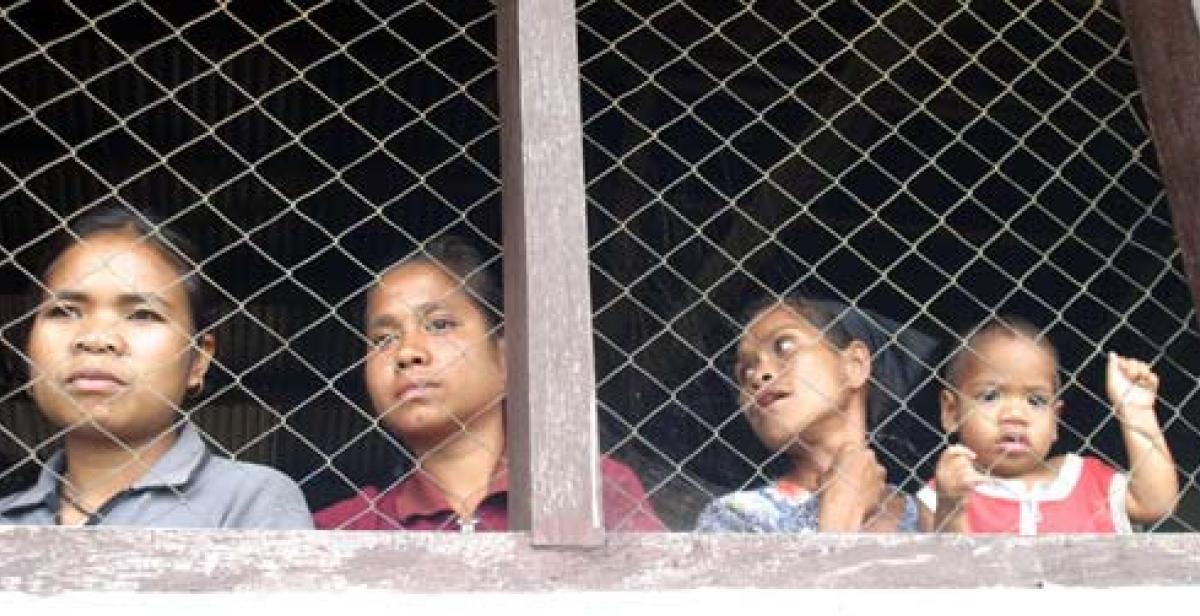How do the Timorese and their supporters bring justice? asks Progressio's Steve Kibble
A year ago, I co-wrote and presented a paper on Timor-Leste at a conference in Bangkok called ‘Breaking the Silence’. The conference could be said to have been fairly quiet in relation to Timor-Leste. There was loads of stuff on Indonesia, Cambodia, Malaysia, etc – with my all-time favourite title being ‘Shopping for their Own Pair of Pink Stilettos’ about Filipino LGBT (lesbian, gay, bisexual and transgender) rights – but only one paper on Timor-Leste. Still, I can hardly complain: out of over 100 papers, ours was one of the 12 recently published in the book of the conference.
(Download a PDF of the paper Pathways to justice: The struggle of civil society to define and seek justice in Timor-Leste 1.7MB PDF, reproduced with kind permission of the publishers, SEAHRN)
The struggle of civil society
Tibor van Staveren (our country representative in Timor-Leste), Ed Hobey (who volunteered for Progressio on a number of jobs), and I looked at the way that civil society in Timor-Leste was still seeking a full justice process for the people, or their relatives, who were killed, tortured, disappeared and displaced during the 24-year illegal Indonesian occupation – an invasion which the West, in the context of the Cold War, connived at. (One is here always reminded that Tom Lehrer said he gave up satire as he couldn’t compete with Kissinger – a key backer of Indonesia – being given the Nobel Peace Prize.)
The many crimes against humanity that occurred have been well documented in the 2005 report of the Truth and Reconciliation Commission (better known as CAVR, its Portuguese abbreviation) called, appropriately, Chega! (or ‘Enough!’). Despite campaigns, including by Progressio supporters and Timorese civil society, the many recommendations, especially on full justice, reparations and some form of international tribunal (whether modelled on, for example, Sierra Leone or Yugoslavia), remain unfulfilled.
The need for healing
Our paper pointed out that without true healing, Timor-Leste would remain in a fragile state with recurrent cycles of violence. While it is true that these cycles of violence happened, the odd paradox has been that things have become more stable since the attempted assassinations of the then Prime Minister and President, which frightened the life out of Timor’s tiny but squabbling political elite. However next year sees elections and like many other places, although not on the scale of say Zimbabwe, elections are fraught with tensions and the likelihood of deep divisions leading to violence.
The basic problem – and one that could be applied to several nations, including the British in relation to their colonial past – is that the Indonesians are largely in denial (or indeed in complete ignorance) about past atrocities in Timor, although, oddly, not in relation to what happened in their own country.
We did point to the attempts to acquaint Indonesians with their past relations with their tiny neighbour. Here the work of the Timor-Indonesia Commission for Truth and Friendship was not quite the whitewash that people feared. Chega! was recently launched in Jakarta, and there was action at street level through pirated copies of the Jakarta-banned film ‘Balibo’ being sold throughout Indonesia. Try and see this great film about the start of the Indonesian occupation, based around the attempted cover-up of the deaths of six Aussie-based journos at the hands of Indonesian forces.
The need for justice
After some examination of the forms of transitional justice, we looked at the efforts of civil society, including Progressio partners in the national and international campaigns ‘Pathways to Justice’ and East Timor: Who Cares?, to bring about justice. We reported on the ANTI group who want a full judicial tribunal, and La’o Hamutuk whose research showed that 90% of Timorese they questioned thought that those who commit murder should be punished – a view not shared by leaders José Ramos-Horta or Xanana Gusmão. We also looked at the way that the Timorese Parliament has backed off from discussing Chega! or following up its recommendations.
The fact is that no-one wants to upset Jakarta, not least the Timorese government. Many have criticised the willingness of Timor’s leaders to roll over and lie doggo when Jakarta so commands – possibly a little unfairly, given the relative size and strength of the countries and Dili wishing to join ASEAN for which it needs Jakarta’s support.
Overcoming structural violence
We finished by saying that despite some promising moves for justice in Timor-Leste and the privileging of reconciliation over justice, the problem remained Indonesia. We concluded: “Crimes against humanity remain just that. Without a vision of what transitional justice means and has to offer for Timor-Leste, the debate remains frozen and structural violence has yet to be overcome – despite efforts especially within civil society to address the issues.”
The book itself deals with some key components of meeting human rights in Southeast Asia. The intro of the book looks, perhaps optimistically, to a time when protection of human rights (rather than just alleged promotion) is guaranteed, as is the right to have individual complaints taken up, and for human rights defenders not to be sent into exile or tortured, and for consistent engagement between civil society and governments on key issues of rights. Pragmatism and looking at our sources of power is a key answer one author propounds – perhaps you should read the book and see if you agree?
Steve Kibble is Progressio’s Policy and Advocacy Officer for Africa, Middle East and Asia.
Download a PDF of the paper Pathways to justice (1.7MB PDF) reproduced with kind permission of the publishers, SEAHRN.
Human Rights in Southeast Asia Series 1: Breaking the silence (ISBN 978-974-11-1567-9) was published in October 2011 by the Southeast Asian Human Rights Studies Network (SEAHRN) http://www.seahrn.org/
Photo: People at a window in Timor-Leste (photo © Nick Sireau/Progressio)



